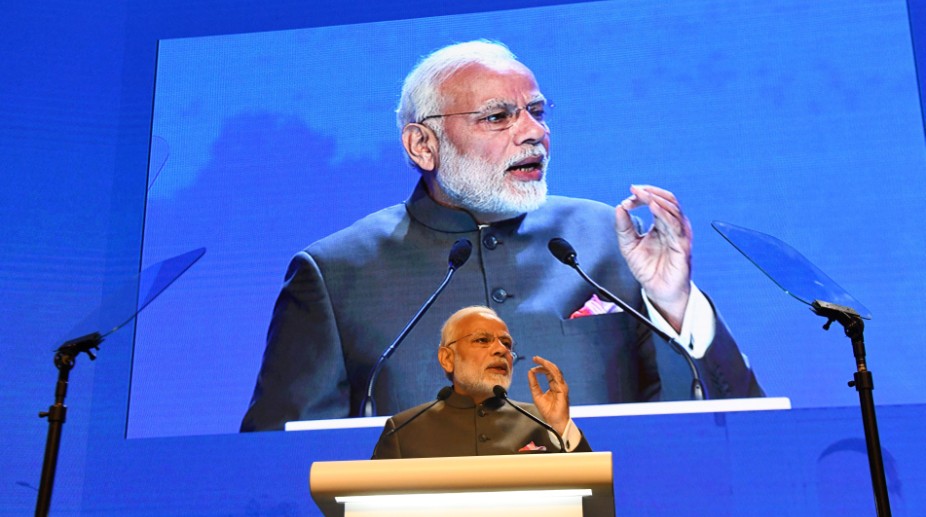“Asia and the world will have a better future when India and China work together with trust and confidence, sensitive to each other’s interest,” said Prime Minister Narendra Modi in his keynote address at the Shangri La Dialogue in Singapore.
Recalling his informal summit meeting with Chinese President Xi Jinping held in Wuhan in April, PM Modi said that none of India’s relationship has as many layers as its relations with China.
Advertisement
“Our cooperation is expanding, trade is growing and we have displayed maturity and wisdom in managing issues and enduring a peaceful border,” the Indian PM said.
Modi and Xi had exchanged views on solidifying the relationship between the two Asian powers during the informal summit.
Addressing the Track I annual inter-governmental security forum on 1 June, the PM called for a unified Asia for the sake of world peace and highlighted his government’s commitment to Act East policy.
“The ASEAN-India commemorative Summit was a testimony to our commitment to ASEAN and to our Act East policy,” he said at the the 17th Asian Security Summit of the Dialogue held in the city state.
“I see ASEAN as an example of a world where nations rise above divisions and competition to work together,” he said asserting that an Asia of “rivalries” will hold the region back while an Asia of cooperation will shape the century.
Commenting on Indo-Pacific region – a geopolitical term which has replaced ‘Asia-Pacific’ to denote the expanded group of nations that share a coastline with the Pacific and Indian oceans – the PM said that India’s vision for the region is positive.
“India does not see the Indo-Pacific region as a strategy or as a club of limited members. Nor as a grouping that seeks to dominate. And by no means do we consider it as directed against any country,” stressed PM Modi.
“India stands for a free, open, inclusive Indo-Pacific region, which embraces us all in a common pursuit of progress and prosperity. It includes all nations in this geography as also others beyond who have a stake in it,” he said on the second of the three-day visit to the city state which is strategically located on the world’s busiest trade route.
The PM said that India will pursue its SAGAR (Security and Growth for All in the Region) policy more vigorously through Act East policy.
At the Dialogue, the PM Modi recognised Singapore as an ideal nation that focuses on principles and praised the country’s contribution in shaping the history of the region. He called the city state the centuries old gateway for India to the broader East.
He also touched upon the strong ties between India and countries in the Indo-Pacific region such as Japan, South Korea, Australia, New Zealand and nations that are a part of India-Pacific Islands Cooperation (FIPIC).
Recalling his recent visit to Russia for an informal summit at the invitation of Russian President Vladimir Putin, PM Modi said the two leaders shared their views on the need for a multi-polar world order to deal with the challenges of the times.
The Indian PM then also spoke about India’s ties with the US, with whom the country’s strategic partnership is deepening.
“We share the same vision of an open, stable, secure and prosperous Indo-Pacific Region,” he said.
Underlining the importance of oceans for the prosperity of the world, the PM called for common spaces on sea and in the air that can be used by anyone “without discrimination”.
“Only then will we be able to prevent maritime crimes, preserve marine ecology, protect against disasters and prosper from blue economy,” he pointed out.
On issues relating to trade, Modi said India stands for an open and stable international trade regime.
“Competition is normal. But, contests must not turn into conflict; differences must not be allowed to become disputes,” he said, adding, “When we work together, we will be able to meet the real challenges of our times. We will be able to protect our planet. We will be able to ensure non-proliferation. We will be able to secure our people from terrorism and cyber threats.”
PM Modi, who became the first Indian Prime Minister to address Shangri La Dialogue, said that humankind now looks to the Rising East with the hope to see the promise that the 21st century beholds for the whole world.
